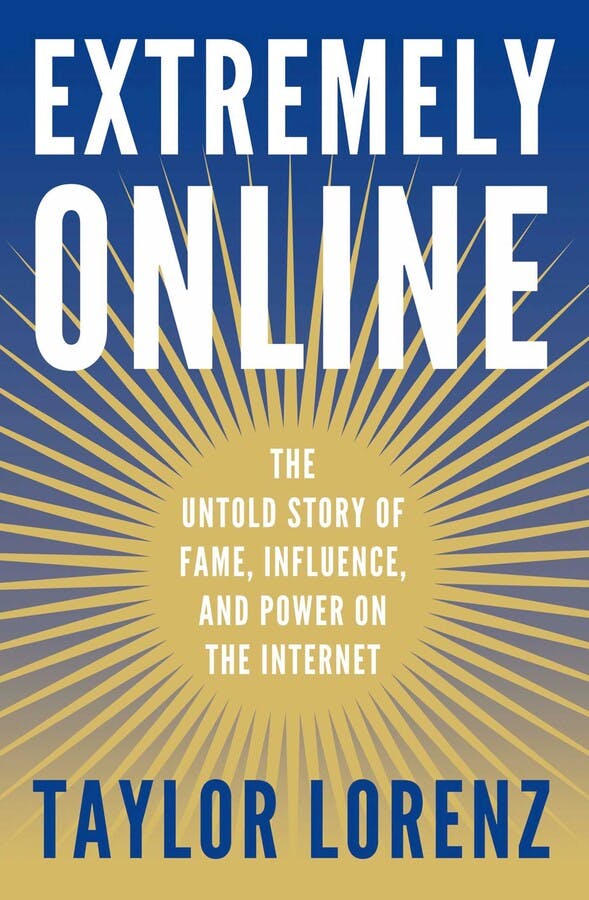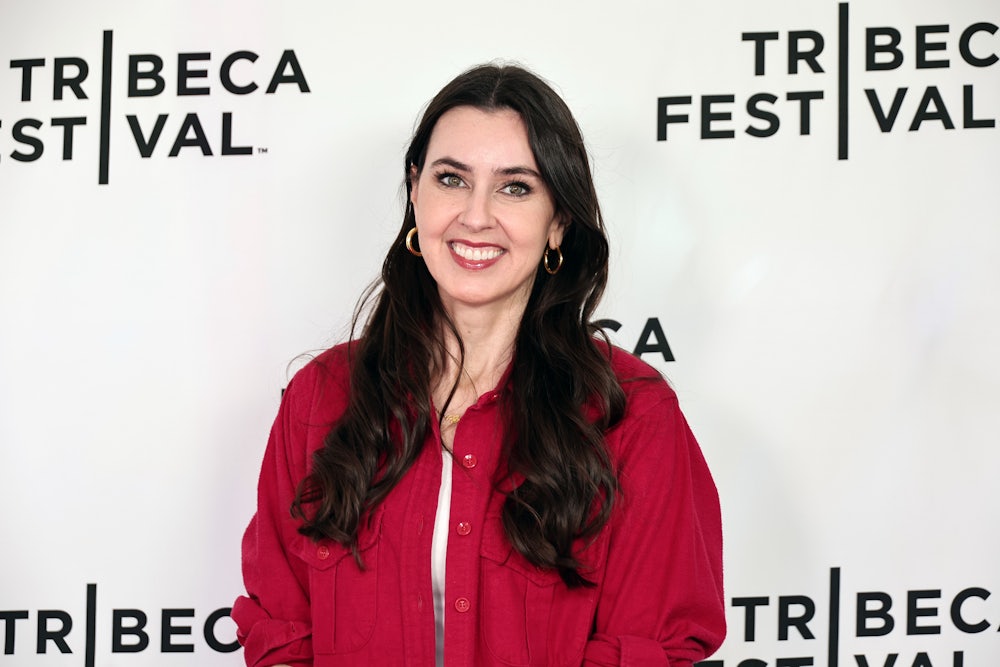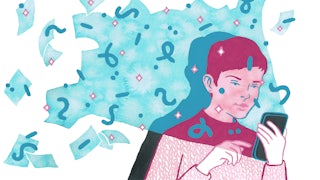With every new social media platform comes a new wave of popular content creators: from Tumblr teens and Vine comedians to TikTok dancers and terminally online journalists on Twitter. Yet the history of web 2.0 has often focused on companies and their founders, rather than on the influencers and content creators—the people average users connect with and relate to in their day-to-day interactions.
In her new book, Extremely Online: The Untold Story of Fame, Influence, and Power on the Internet, Taylor Lorenz argues that the source of almost every social media platform’s success is its own users. Beginning with journalist Josh Marshall, who founded an independent news organization that all started with a blog, and focusing on the late Heather Armstrong, who pioneered mommy blogging, Lorenz weaves the intricate story of social media and the communities that lie in it.
I recently spoke with Lorenz about users’ innovations, platforms’ slowness to catch up, Twitter’s misfortunes, and the future of social media. Our conversation has been edited for length and clarity.

Ella Sherman: In contrast to many other books on the internet, Extremely Online emphasizes the important roles played by influencers and content creators. What has been their most distinctive effect on the internet as we know it?
Taylor Lorenz: I think they mainstreamed the adoption of all of these platforms, and if you look at who the power users are that first embraced a lot of the biggest social media apps today, they were influencers and content creators. The way that they use the platforms ends up trickling down and becomes the way that all of us use them. You could think of [how] content creators normalized the selfie or started things like the hashtag—that didn’t exist as a concept before. Chris Messina, who’s a content creator, created it. The many ways we post and the language we use on social media is shaped by these influential content creators. I think without them, we wouldn’t have mass adoption of these platforms. There would be no content to keep us on there. They make the content that keeps us engaged and coming back to these apps.
E.S.: What do you think people often misunderstand about this type of work?
T.L.: Such a good question. I think it’s a very misunderstood job because people don’t totally understand what it entails. A lot of people think, “Oh, it’s just snapping pictures of yourself; it’s very easy to generate attention.” It’s actually very hard. You’re essentially starting your own media business. And growing your business and monetizing is really difficult to sustain, especially if your media business is built around your own personal brand. I think people don’t understand how difficult it is and how challenging it is to grow and sustain a business. Also, just psychologically, it’s difficult, you have kind of all the downsides of fame and none of the upsides.
E.S.: You have reported on content creator houses. They can be positive, in that they offer a community for creators, but at the same time, they can be a toxic environment, in some cases.
T.L.: You’re 100 percent right, I think it’s kind of a double-edged sword. These collab groups and houses can be a very supportive community for content creators who are looking for support, easy collaboration. It’s easier to grow together as a group, but it can also be very toxic, it can be a very high-pressure environment. Sometimes you have management companies getting involved, seeking to profit off these groups very early. A lot of times, they don’t end up owning a lot of their own content or seeing a lot of the upside. Also, just the interpersonal dynamics can be really tough because, of course, every one of these groups usually has like one or two breakout stars. For everyone else, it can be a little bit hard. For instance, with the Hype House, you had Charli D’Amelio and Addison Rae break out, and for the rest of them, it maybe took a minute to find their way. You don’t want to be defined only by the group that you’re in.
E.S.: Why do you think stories like these are so often left out of sweeping histories?
T.L.: I think most of the narratives are these views that we’re fed that glorify entrepreneurialism and start-up founders and mostly men in Silicon Valley that have built these companies. And that’s because of the way our culture is set up. We have this obsession with “great men” who invent these technologies, and actually the history is a little more complicated than that, as you can read from my reporting. It’s the users themselves that shape it into what they are today.
E.S.: Several platforms only began to share revenue with users when the platforms themselves faced existential threats. How has monetization changed the status of influencers?
T.L.: Most tech companies, apart from YouTube, which really recognized the value of this business model early, but most tech companies were really remiss to any monetization schemes for content creators because they didn’t want to give up any revenue themselves; they want to keep all the money for themselves, of course. So they didn’t see value, and they also didn’t want to give these users very much power. They didn’t really like the power a lot of these content creators had over their platforms. It wasn’t until the mid-2010s when these content creators became so big. Now you’re seeing the tech platforms play catch-up, where they’re trying to figure out sustainable monetization strategies for content creators to profit.
E.S.: How do you think parasocial relationships between fans and creators have evolved throughout social media history?
T.L.: I think the relationship between fans and their creators has evolved a lot because now there’s this expectation that content creators will be more responsive to fandoms. Earlier on, in the early 2010s, fans themselves weren’t as online, so you had a lot of people watching YouTubers, but they didn’t have social media accounts themselves. It was more of just an entertainer-viewer relationship. Now, because everyone has social media and everyone has their own platform, it’s much more interactive, and people really expect their favorite content creator to interact with them and respond to them.
E.S.: Twitter is becoming increasingly difficult to use under Elon Musk’s ownership. The platform continues to lose users. Do you think Twitter’s trajectory is a sign of things to come in social media?
T.L.: I think it’s very unique to Elon. For Elon, Twitter is a political project, so he doesn’t care about tanking its value as long as he’s able to use it to promote his specific political ideology. That’s his goal for the platform, so I don’t think it says much about social media, aside from Elon and how platforms are vulnerable to the delusional whims of their founders.
E.S.: What do you think could happen to the state of media literacy generally on social media, but also on Twitter?
T.L.: There’s no media literacy on Twitter—you’re not media literate on Twitter and media literate in other places. You’re either media literate or you’re not. It’s a scale, of course. It’s not specific to Twitter, so if we look at media literacy as a whole in the United States, it’s at an incredible low. Most people don’t even know how to determine the difference between an opinion article and a reported piece, and there’s tons of misinformation, even in the traditional news media. People are increasingly getting their news from content creators, who also spread a lot of misinformation. I think it’s a really tricky media climate that we’re all operating in right now, and I don’t think that will change anytime soon because it would require such an extensive public education effort. I don’t think any politician is interested in supporting something like that because it’s to their benefit. Keeping people ignorant is unfortunately politically beneficial for a lot of people.






